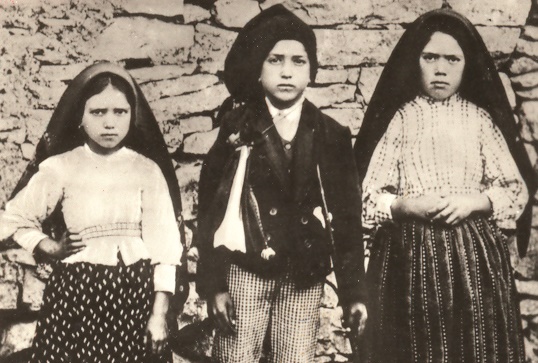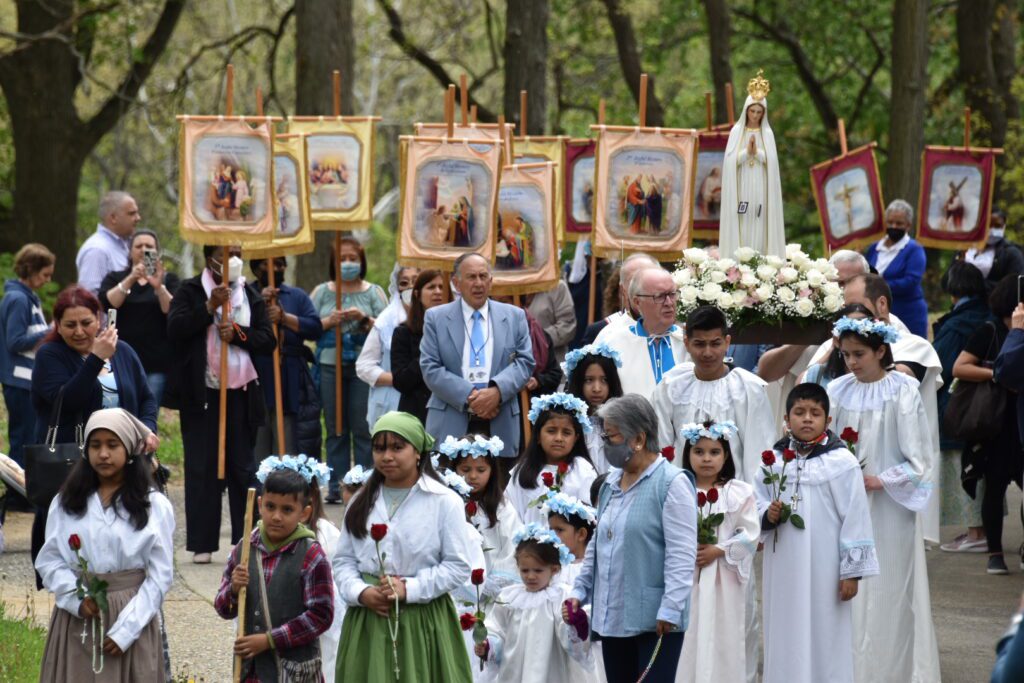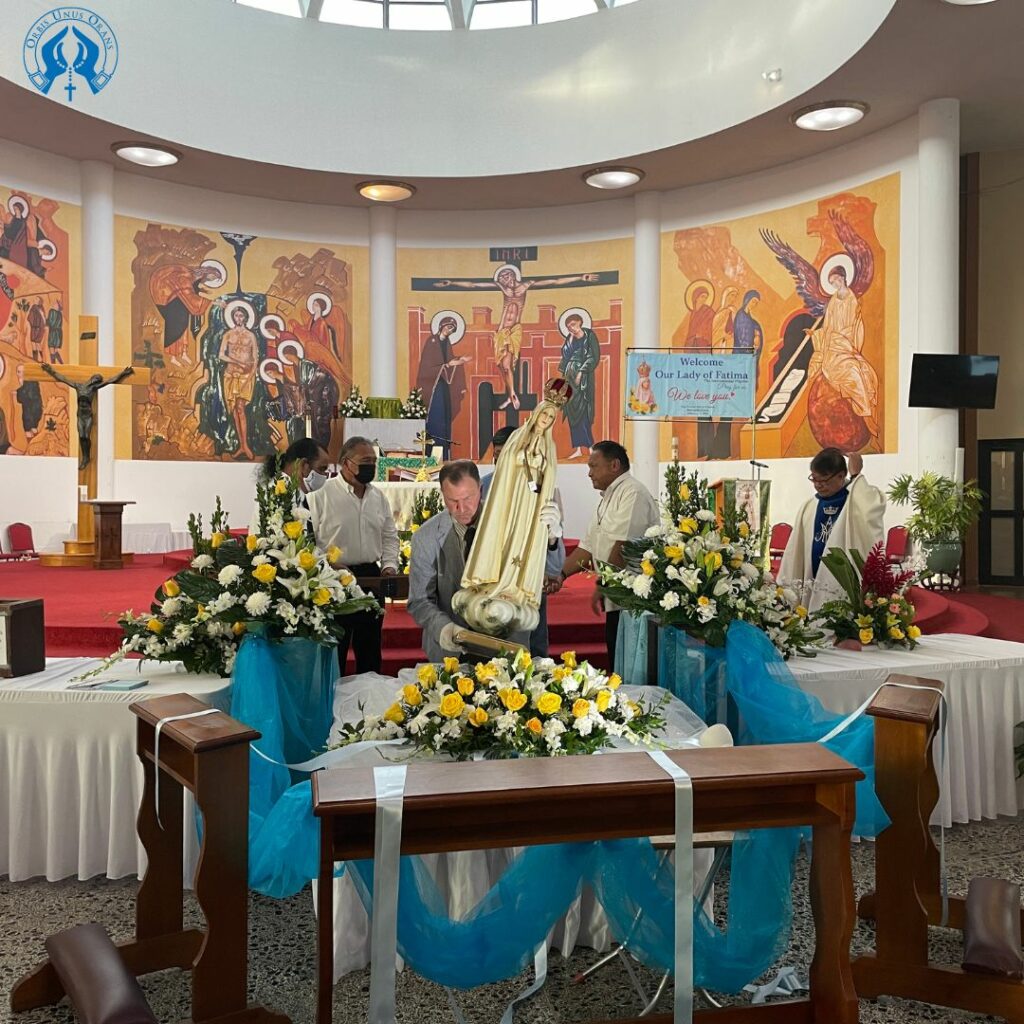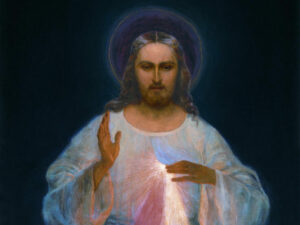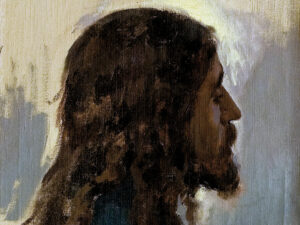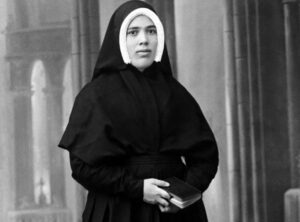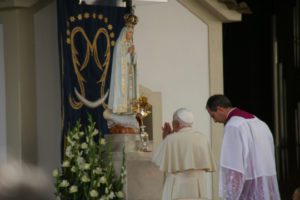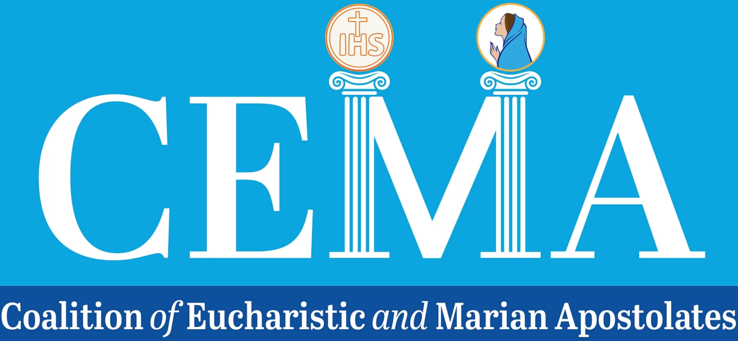by Father Frank Pavone,
National Director, Priests for Life


Christians are used to looking beyond appearances. The baby in the manger does not look like God; nor for that matter does the man on the cross. Yet by faith we know He is no mere man. The Bible does not have a particular glow setting it off from other books, nor does it levitate above the shelf. Yet by faith we know it is uniquely the Word of God. The Eucharist seems to be bread and wine, and yet by faith we say, “My Lord and My God!” as we kneel in adoration.
The same dynamic of faith that enables us to see beyond appearances in these mysteries enables us to see beyond appearances in our neighbor. We can look at the people around us, at the annoying person or the ugly person or the person unconscious in a hospital bed, and we can say, “Christ is there as well. There is my brother, my sister, made in the very image of God!” By the same dynamic we can look at the pre-born child and say, “There, too, is my brother, my sister, equal in dignity and just as worthy of protection as anyone else!”
The Eucharist is a Sacrament of Unity. “When I am lifted up from the earth,” the Lord said, “I will draw all people to myself” (Jn 12:32). He fulfills this promise in the Eucharist, which builds up the Church. The Church is the sign and cause of the unity of the human family.
St. Paul comments on this, “We, many though we are, are one body, since we all partake of the one loaf” (1 Cor. 10:17). When we call each other “brothers and sisters,” we are not merely using a metaphor that dimly reflects the unity between children of the same parents. The unity we have in Christ is even stronger than the unity of blood brothers and sisters, because we do have common blood: The blood of Christ! The result of the Eucharist is that we become one, and this obliges us to be as concerned for each other as we are for our own bodies.
Imagine a person who receives Communion, accepts the Host when the priest says, “The Body of Christ,” says “Amen,” and then breaks off a piece, hands it back, and says, “Except this piece, Father!” This is what the person who rejects other people may as well do. In receiving Christ, we are to receive the whole Christ, whether convenient or inconvenient, wanted or unwanted.
As St. John remarks, Christ was to die “to gather into one all the scattered children of God.” Christ came “to destroy the works of the devil” (1Jn 3:8). The Eucharist builds up the human family in Christ who says, “Come to me, feed on My Body, become My Body.” Abortion, in a reverse dynamic, says, “Go away! We have no room for you, no time for you, no desire for you, no responsibility for you. Get out of our way!” Abortion attacks the unity of the human family by splitting asunder the most fundamental relationship between any two people, mother and child. The Eucharist, as a Sacrament of Unity, reverses the dynamic of abortion.
The Eucharist is the Sacrament of Life. “I am the Bread of Life. He who eats this bread will live forever. I will raise Him up on the last day.” (Jn 6:47-58) The Eucharistic sacrifice is the very action of Christ by which He destroyed our death and restored our life. Whenever we gather for this sacrifice we are celebrating the victory of life over death, and therefore over abortion. The pro-life movement is not simply working “for” victory; we are working “from” victory. As St. Pope John Paul said “Have no fear. The outcome of the battle for life is already decided.” Our work is to apply the already established victory to every facet of our society. Celebrating the Eucharist is the source and summit of such work.
The Eucharist is the Sacrament of Love. The best symbol of love is not the heart, but rather, the crucifix.
Abortion is the exact opposite of love. Love says, “I sacrifice myself for the good of the other person. Abortion says, “I sacrifice the other person for the good of myself.” In the Eucharist we see the meaning of love and receive the power to live it. The very same words, furthermore, that the Lord uses to teach us the meaning of love are also used by those who promote abortion: “This is my body.” These four little words are spoken from opposite ends of the universe, with totally opposite results. Christ gives His body away so others might live; abortion supporters cling to their own bodies so others might die. Christ says “This is My Body given up for you; This is My Blood shed for you.” These are the words of sacrifice; these are the words of love.
Indeed, the Eucharist gives the pro-life movement its marching order – It defines it. It also provides the source of its energy, which is love. Indeed, if the pro-life movement is not a movement of love, then it is nothing at all. But if it is a movement of love, then nothing will stop it, for “Love is stronger than death, more powerful even than hell” (Sg 8:6).
Father Frank Pavone is national director of Priests for Life and the national pastoral director of Rachel’s Vineyard Ministries and the Silent No More Awareness Campaign. The books he has authored include Abolishing Abortion and Proclaiming the Message of Life.


